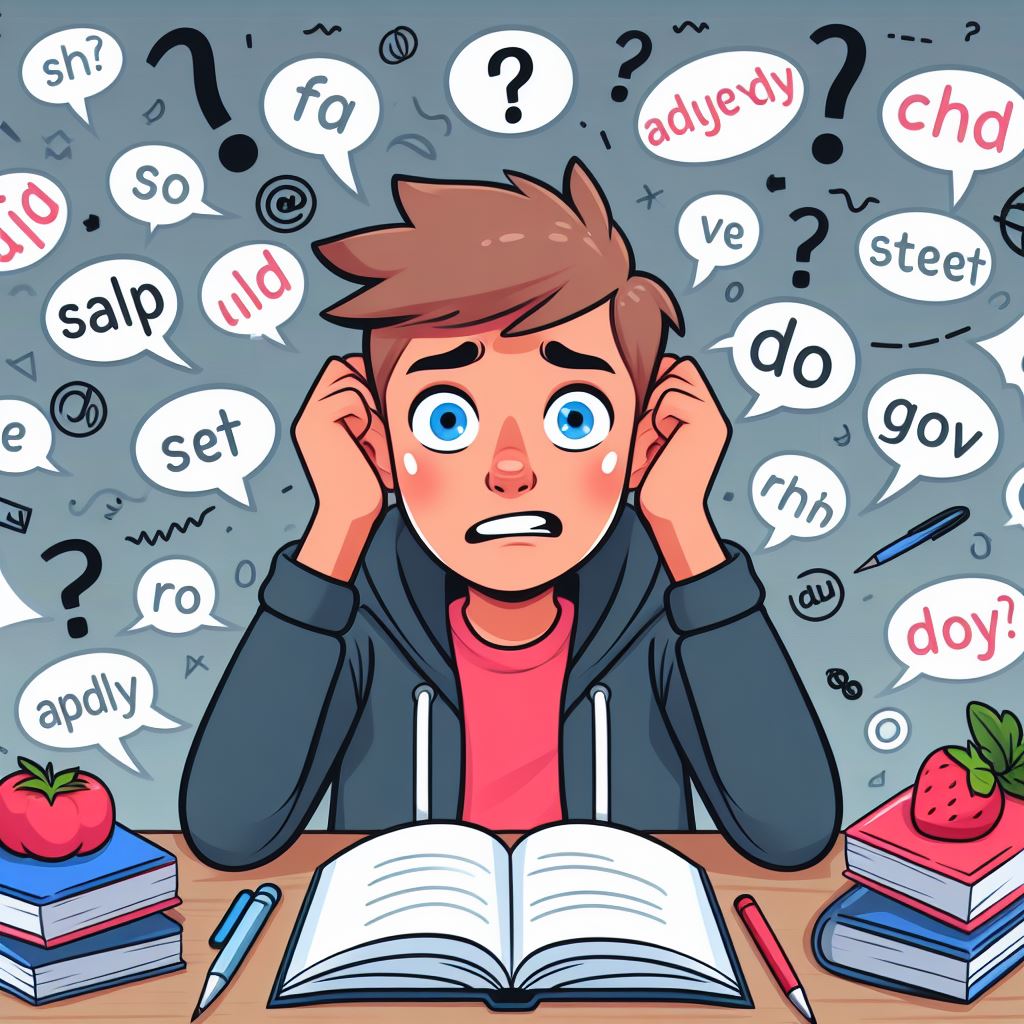Imagine a world where everyday tasks like reading a menu, filling out a job application, or understanding a road sign seem like a daunting challenge. That’s the reality for many adults who struggle with literacy, particularly when English is not their first language. Adult literacy extends beyond just reading and writing; it also encompasses numeracy and digital literacy, providing a foundation for continuous learning and effective participation in the wider world.

Statistics show a jarring truth: millions of adults around the world lack basic literacy skills, impeding their ability to thrive personally and professionally. In the United States alone, the National Assessment of Adult Literacy suggests that about 43 million adults are functionally illiterate in English, which affects not just the workforce, but also impacts family life and societal cohesion.
The benefits of adult literacy programs are multifaceted, and they positively reverberate through communities. By equipping individuals with the literacy skills they need, these programs help to unlock doors to better employment opportunities, enhance social and civic engagement, and improve quality of life. Moreover, there’s a significant economic upside, as literate populations contribute to a more dynamic and robust economy.
Table Below Shows The Effects of Literacy on a Community
| Category | Benefits of Literacy |
|---|---|
| Economic Growth | – Increased employment opportunities and income levels |
| – Higher productivity and innovation in local businesses | |
| – Attraction of new businesses and investment in the community | |
| Education | – Higher rates of high school graduation and college attendance |
| – Greater access to lifelong learning opportunities | |
| – Improved educational outcomes for future generations | |
| Health | – Better understanding of health information and medical instructions |
| – Lower healthcare costs due to preventative care and healthier lifestyles | |
| – Reduced infant mortality rates and increased life expectancy | |
| Social Empowerment | – Greater civic participation and engagement in community activities |
| – Enhanced ability to advocate for oneself and others in social and legal matters | |
| – Strengthened community bonds through shared knowledge and communication | |
| Crime Reduction | – Lower crime rates due to increased access to education and employment |
| – Reduced recidivism rates through educational programs in correctional facilities | |
| – Safer, more stable communities | |
| Cultural Enrichment | – Preservation and promotion of local culture and heritage |
| – Increased participation in cultural activities and events | |
| – Greater appreciation and understanding of diversity |
This isn’t just about economic growth, though; it’s also about personal empowerment. Adult literacy programs cultivate a sense of achievement and self-worth as learners see their own progress, translating into a more confident and self-sufficient populace. There are countless stories of people who, once given the tools to read and write effectively in English, have completely transformed their lives, opening up new horizons and possibilities.
As you’re going to find out about in the next section, navigating adult literacy programs is key to unlocking these life-changing experiences. Whether it’s through community centers, online platforms, or local libraries, these programs are structured to cater to varying levels of English proficiency, ensuring that each learner’s journey is as unique as their background and goals.
Navigating Adult Literacy Programs: What to Expect
When you’re looking to join an adult literacy program, it’s important to know what kind of experience you’re signing up for. Most programs share a common goal of improving your reading and writing skills, but they can vary greatly in their approach. You can expect a mix of classroom instruction, one-on-one tutoring, and workshop-style learning. These are designed to help you not only with the language itself but also to understand cultural nuances, which can be just as crucial.

Some learners prefer the traditional in-person approach where they can interact with instructors and peers face-to-face. This type of setting can be especially beneficial for those who thrive on personal interaction. However, online literacy programs have gained significant traction, especially for those with busy schedules or limited transportation. They offer flexibility and the convenience of learning from anywhere.
Once you decide to enroll in a program, assessment and placement come next. This isn’t just about finding out your current skills; it’s also about setting the stage for a personalized learning path. Most programs use assessments to gauge your reading, writing, and comprehension levels, ensuring you’re placed in the right class that matches your learning needs.
Moreover, you’re going to find out that technology is increasingly becoming a part of the learning process. Many programs incorporate digital literacy into their curriculum because, in today’s world, being able to navigate a computer or smartphone is nearly as essential as being able to read a book. You’ll learn how to use various tools and platforms which can help with your language development and provide practical skills for everyday life.
So that’s what you’ll typically encounter in adult literacy programs. But remember, as you’re going through this educational journey, you’ll be faced with challenges. In the next section, I’m going to show you some of the obstacles that fellow learners have faced and, more importantly, how they’ve overcome them to succeed in mastering the English language.
Challenges and Success Stories in Adult Literacy Education
Adult learners face a unique set of challenges on their journey to literacy, and understanding these hurdles is key to developing supportive learning environments. One major barrier is finding the time to study while managing work, family, and other life responsibilities. Also, past educational experiences can affect confidence and motivation, potentially discouraging engagement.

But it’s not just about the barriers. It’s also about the myriad of strategies that can be deployed to overcome them. Tailored tutoring sessions, flexible class schedules, and creating a supportive community of learners are just a few examples. Educators play a critical role, often needing to be as much a coach and mentor as they are a teacher.
Measuring success in adult literacy is another vital component. Programs might track progress through regular assessments, but the real victories are seen in the improved quality of life for the learners—like better job opportunities, enhanced social interaction, and increased ability to support their children’s education.
The narratives of success woven by adult literacy programs are incredibly moving. Take Maria, who went from struggling with basic English to becoming a small business owner, or John, who can now help his daughter with her homework. These are the moments that underscore the profound impact of adult literacy.
Continuing on the theme of impact, next, we’re going to explore the numerous ways that you—yes, you—can contribute to the growth and support of adult literacy programs. From volunteering your time to advocating for funding and resources, there are ample opportunities to make a difference. And remember, it’s not just about literacy; it’s about empowerment and community-building.
Getting Involved and Supporting Literacy Initiatives
I really hope that you’re feeling inspired about the potential impact of adult literacy programs. If you’re considering how to make a difference, you’ve got plenty of options.

Getting involved in supporting literacy can take many forms. From tutoring to donating, every action you take contributes to a larger change. Volunteering with local literacy programs can be an incredibly rewarding experience. Many organizations are on the lookout for people eager to help others learn.
If you want to contribute but can’t commit to volunteering, consider donations. Funding is crucial for these programs to sustain and expand. Your donation can go toward buying books, paying for educational software, or even covering transportation costs for learners.
Advocacy is another powerful way to support literacy. Promote awareness on social media, attend community meetings, or reach out to political representatives to emphasize the importance of funding and supporting adult literacy programs.
You can always adjust your approach down the road. Perhaps start with a small donation, and as you learn more about the programs and their needs, you might find yourself getting more involved. Choose something that resonates with you and start there.
Just don’t focus too much on perfection. Your initial steps toward supporting adult literacy, no matter how small, are vital. As a collective, these efforts add up and can lead to profound changes within communities and across the nation.
In closing, the journey towards improving adult literacy is an ongoing one, and your involvement can spark a chain reaction of positive outcomes. Your voice, time, and resources are invaluable assets in this essential mission. I’d love to hear your feedback on how you plan to support adult literacy programs, leave your comments below and let’s continue to make a difference together.


Hi Bob,
Great article about adult literacy. The ability to read and write is a fundamental skill that opens doors to countless opportunities, from better employment prospects to enhanced social engagement and personal empowerment. It’s inspiring to see how these programs not only change individual lives but also strengthen entire communities through economic growth, improved health outcomes, and cultural enrichment.
I really need to find the English language learners programs near me and get involved. I know these programs can be very impactful to the community.
– Scott
Hi Scott, welcome back. Thanks again for your comments. It’s good to hear from you. I don’t know where you live. I am an active member of two adult education advocacy groups. One is statewide where I live in California, The California Council for Adult Education (CCAE) and the other is nationwide in the USA, The Coalition Of Adult Basic Educaiton (COABE). If you live in the USA, one of them should be able to help you located programs in your area. Everyone is welcome.
Leave comments and questions here anytime. I will promptly reply.
KBob
KBOB, what a wonderful niche you have chosen. The need for learning English is very important for newcomers and people without English speaking skills. As more and more people enter our borders it should be a necessity for them to learn the language, and even for them to maybe teach their language to others. Those that are willing to learn new things will gain much progress in life. Best of luck.
Hi Walter, thanks for your comments. Yes, people need to learn the language where they live. I don’t know how people survive without knowing the language. I love teaching people to learn the only language I’m fluent in-English.
Leave comments and questions here anytime. I will promptly reply.
KBob